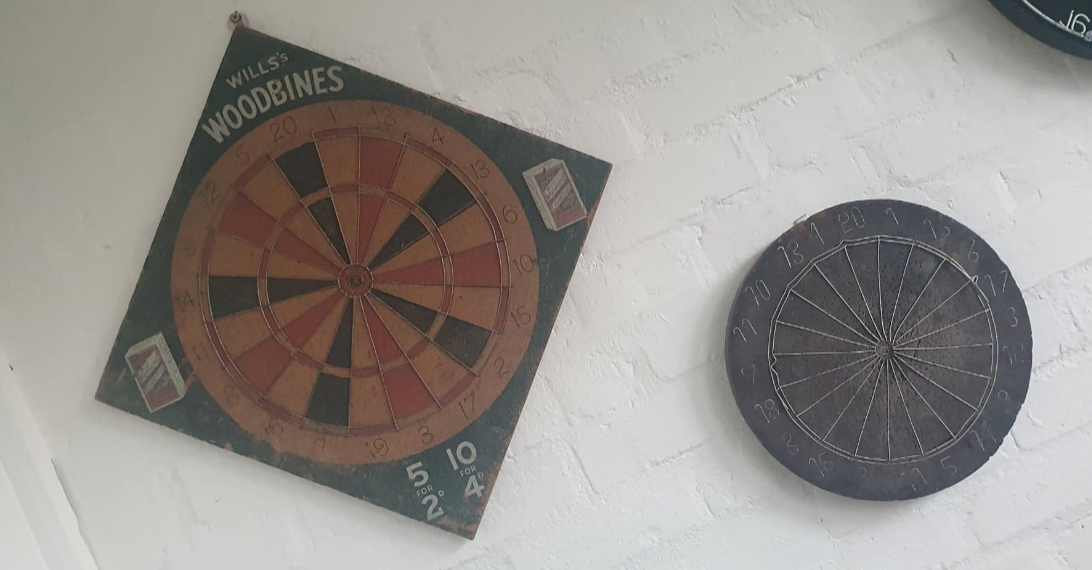Darts is a hugely popular sport today and is also the most widely played pub game, but where did it all start and why has it been so successful? Let’s take a look through the ages as we outline a brief history of darts.
Where did it all begin?
Though there is no conclusive evidence, most historians agree that the principle of throwing something sharp at a target for sport began in the UK in the Middle Ages. It is most likely that the game originated from archery, with some suggesting that bored soldiers passed the time by hurling arrows at upturned wine barrels to see who could get closest to the centre. Archers also used wooden boards with concentric circles to practice their shot and improve accuracy and this is not really that far removed from the darts game we know and love today.
Early darts games
The first reference to a game of darts actually came from France, where the game flechettes (small arrows) originated in the 19th century. These darts were made of wood with a metal tip and bird feathers to help them fly.

In terms of their first reference in the UK, it is thought that darts started out as a fairground game. If you’re old enough to remember throwing three darts at your local fair to win a goldfish then this origin seems to make sense.
Darts as a pub game
We know for a fact that darts was being played as a pub game from the early 1900s as in 1908 publican Jim Garside was taken to court for allowing games of darts to be played in his pub at a time when gambling (or games of chance) were prohibited. He argued that it was in fact a game of skill rather than chance, proving it in the courtroom by throwing 3 darts with a score of twenty and challenging the magistrates to replicate. When they couldn’t, it was agreed that darts was in fact a game of skill, which led to an eventual change in the laws.
Darts during the war years
In the years running up to the start of the First World War, darts grew in popularity in pubs, with brewery leagues being established and after the war ended, with the growing need for rules and regularity, the National Darts Association (NDA) was formed.
By the 1930s, darts had become a popular recreational game, played by all classes and replacing previously popular pastimes such as quoits and skittles. Regional dartboard variations were developed, with the London or ‘clock’ ring, that we know and love today as the 3 ring dartboard, not being the instant hit you would imagine.
During the Second World War, soldiers were issued darts in their sports packs, giving them something to do during their downtime and by the time the war ended, the game of darts had spread far and wide across the continents, cementing itself as a popular pastime.
Rules and regulations
The rules and regulations of darts set out by the NDA in 1925 remained mostly unchanged through the years, despite the fact the organisation did not survive. Governing of the sport was taken over by the British Darts Organaisation (BDO) in the 1970’s and the game reached new audiences when in 1972 the News of the World Individual Darts Championship was broadcast by the Independent Television Authority to a receptive audience.
During the 1970s and 1980s as television audiences increasingly switched on to the game, darts players became household names. The World Darts Council - now the Professional Darts Council (PDC) was established in 1992 and with the introduction of satellite television, viewers had more access than ever to matchplay. Darts is broadcast throughout the world today and sponsorships run into the millions of pounds.
What does the future hold for darts?
The great thing about darts is it’s a game anyone can play, regardless of age, ability or income. It is something that you can dip your toe into once in a while or play regularly at an amateur or professional level if you’re good enough and it is for this reason that darts has a very exciting future. Some have even suggested it might one day become an olympic sport. From mediaeval boredom killer, to pub game to global sport - what’s not to love?! Thanks for reading our history of darts, compiled with a little help from the sources below.
Sources of info:
https://en.wikipedia.org/wiki/Darts
https://darthelp.com/articles/the-history-of-darts/
https://www.darts501.com/History.html
https://www.pdpa.co.uk/statistics/history/
https://www.britainexpress.com/History/pastimes/darts.htm


